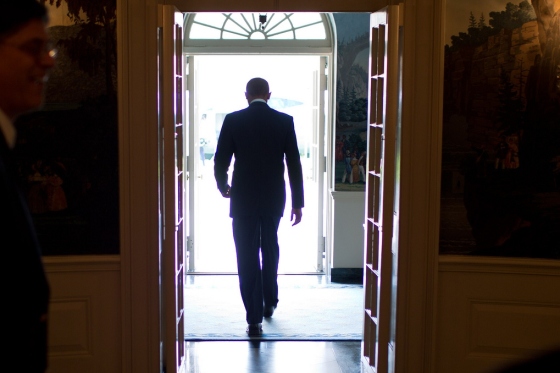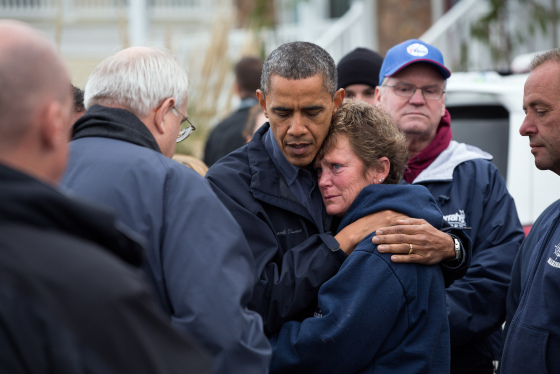Black Americans are used to speaking in many voices, to bridging divides, to seeing themselves through the eyes of others. These abilities have always been necessary for survival in this nation.
Non-fiction Words by Matthew Clair

That I am writing means something. In fact, most of what we do, and who we claim to be, means something. This is not because we are important or special or worthy; this is because we believe ourselves and our lives to be important and special and worthy. If we read the newspaper and learn that a little girl or boy has died, we think to ourselves: how senseless, how unfair. We go to church or a friend or a novel and search for answers. It is hard for us to understand that the natural world simply may not care about us; the caring comes from within our heads, it comes from the meaning we transfer to the world and the promises we keep to one another.
Barack Obama means something. He always has. As a boy, to his parents and grandparents. As a student, to his friends and professors. As a president, to his nation and the world. Meaning is not always positive. Some people have nothing positive to say about the president. Others find in him only virtue. Both groups are making sense of him, imbuing him with meaning. These circles of meaning surrounding our president—the positive and the negative—center on a characteristic that has always meant something in America: his race.
I do not intend to suggest that every thought we have about the president or his policies in some way revolves around his race; what I do mean to suggest, however, is that our larger ideas about him and our general feelings toward him are entangled, on some level, with his race.
People may disagree with me, certainly. They may claim that their feelings toward the president have nothing to do with his blackness. But our national framing of Obama, since he announced his candidacy for president in 2007 in front of Illinois’s Old State Capitol (the same place Abraham Lincoln once declared, “I believe this government cannot endure, permanently half slave and half free”), has always been racialized. After his election, media pundits spoke repetitively about the significance of our nation electing its first black president. At the president’s inauguration, Jesse Jackson was moved to tears. And throughout his first term, black critics have questioned whether or not he has been, or can be, a champion of black issues—precisely because he is black. As a collective, we view this president as no president has been viewed before because his race is different from that of every president before.
And as individuals we do so as well. Despite our best intentions to see this president as a person rather than as a black person, our brains instruct us to do otherwise. Social-psychologists, like Susan Fiske, have found that our brains rely on classificatory short-cuts (or, schemas) that cause us to categorize others based upon their ascribed characteristics. Of course, categorization of people into groups—such as black and white—does not necessitate valuation. We can categorize without applying value judgments to those categories. But the thing is we do apply value to these categories. For those of us who have grown up in mainstream America, where the standard for competence, inclusion and warmth is overwhelmingly white and male, our cognitive schemas overwhelmingly privilege the white and the male while denigrating the non-white and the non-male. As such, Obama, despite our intentions, becomes foreign, arrogant, incompetent, evil. Much of this is the subconscious and involuntary legacy of centuries of marginalization.
What is voluntary, however, is what we do with the categories and implicit biases our brains present us with. We can accept them or confront them, strengthen them through acceptance or weaken them through confrontation.
Since our arrival in this country, black American descendants of slaves have had to view themselves through the dominant racial categories of American society. There is nothing more heartbreaking than to see yourself and your people through a lens not only not of your creation but created for your dehumanization. You exist, day to day and in many interactions, suspicious, cautious and ambiguous. Did he treat me that way because I’m black, or is he just a jerk who treats everyone that way? W.E.B. DuBois termed this “double-consciousness.” Erving Goffman called it “stigma.”
The history of black America has been a history of confrontation with the dominant racial categories that have attempted to define us. We have confronted them, called them out and dismantled them bit by bit. We may have debated over methods, but our goal was always the same. We confront them so that we know how and when to protect ourselves against them. We confront them so that we can better tell our children they are beautiful and intelligent and worthy of this world. Everyday resistance, a tool of the most humiliated slave whose name no one bothered to remember, is the foundation upon which we have been reclaiming our humanity.
Some of us saw Obama and his election, as one more form—maybe even the greatest and final form—of confrontation and resistance. With Obama’s election, some of us were certain, we had finally broken the last barrier.
*
Some of Obama’s harshest critics on the left have been unimpressed, to say the least, with Obama’s job performance when it comes to black America. They see the president’s blackness as a great symbol, but only that—a symbol, an illusion, even, that distracts from the fact that his administration has not been good for black America.
In the heat of the moment and on live television, Cornel West exclaimed that Obama is a “black mascot” of corporate “oligarchs.” In op-eds and in conferences, many black academics have shared his sentiments, if not his rhetoric.
We know the statistics—the rising rate of black unemployment, the alarming levels of black incarceration, the re-segregation of schools. There is no doubt that the black community continues to struggle in comparison to the rest of the country. And yet, black voters continue to support Obama overwhelmingly (most polls have Obama statistically even with the 95 percent level of support he received from blacks in 2008). In this support, some have suggested that blacks have been blinded by symbolism, content to trade substance for symbol.
But this characterization is too simple, too tidy. It is incomplete.
*
I was studying in Venice the year Obama announced his candidacy for the White House. It was summer, and the city was teeming with tourists. I was in college and I was content. Obama’s jump into the race was an exciting thing for a black political science student to observe, even halfway around the world.
That summer I was taking a class on interracial literature. There were fifteen or so of us—American and Italian college students, a professor (older, European, with cloudy glasses, a genuine smile and a fount of knowledge), and a teaching assistant (a graduate student, kind and sharp, someone you don’t forget). We would read thousand-year-old stories about interracial love and identity and mistrust and miscommunication. And we would come to class and try to make sense of the readings, stumbling a bit over the distance between our American and Italian selves and our American and Italian understandings of love, race and trust. What I will remember most from this class is a little book we read near the end. It is a book that I have returned to again and again. It is Jean Toomer’s Cane.
Published in 1923, Cane is sometimes called a novel but really it is a collection of poetry and stories previously published in various journals. Alice Walker once said of Cane that she “could not possibly exist without it,” and Waldo Frank admired the book for “its colossal power.” Even to this day, it reads like something existential, something potent, something that does what we now agree art is supposed to do: imagine a world rather than simply represent this world.
The world Toomer imagines is the American South in the early 20th century, a place he depicts as full of ambiguity. Toomer presents us with characters with ambiguous and aborted feelings, women who are caught between their black lovers and their white ones, girls who are “ripened too soon” by their encounters with womanhood, and “black” boys who have “white” mothers. Toomer’s South is an imagined South because it is a nuanced depiction of the place that prescribes as much as it documents. Toomer does not just present us with images of lynchings, labor exploitation and the micro-processes of white conservative reactionary politics. He also presents us with images of individuals trying to carve out space between the boundaries created by racial domination—individuals whose lives are wholly patterned by racial injustice but who, at times, elide racial categorization and attempt to find ways to re-define their lives outside of the dominant racial order.
The act of re-definition, of change, is an alluring and emancipatory concept. So alluring that it would become the same concept on which the young senator from Illinois would hang his electoral hopes. And so there I was in my hostel in Venice reading Cane and connecting the dots between the hopeful imaginary Toomer gives us glimpses of and the hopeful imaginary Obama was promising us. Even when the snares of racial fear worked their way into the campaign, Obama buckled down on his imaginary. In one of the best speeches he has given to date (the speech known commonly as “the race speech”), he told us—and promised us:
This is where we are right now. It's a racial stalemate we've been stuck in for years. Contrary to the claims of some of my critics, black and white, I have never been so naïve as to believe that we can get beyond our racial divisions in a single election cycle, or with a single candidacy— particularly a candidacy as imperfect as my own.
But I have asserted a firm conviction — a conviction rooted in my faith in God and my faith in the American people — that, working together, we can move beyond some of our old racial wounds, and that in fact we have no choice if we are to continue on the path of a more perfect union.
But the thing about imaginaries is that they depend upon collective action and shared collective understandings. No one man can sustain an imaginary, particularly if the imaginary is contested. Only half of the country shared in Obama’s ideal of re-definition; the other half vehemently opposed it. This division is the present nature of our politics.

*
Our president is an excellent storyteller. His narrative ability is something our nation has admired so much about him that when he fails to connect with us—as he did, for example, in this year’s first presidential debate—we scratch our heads in confusion. The British writer Zadie Smith has written that it is Obama’s “vocal flexibility”—his ability to speak to many worlds and between worlds—that is so promising about him.
Black Americans are used to speaking in many voices, to bridging divides, to seeing themselves through the eyes of others. These abilities have always been necessary for survival in this nation. These abilities have been the mechanisms through which progress has been made. During the 2008 campaign, Obama warned that the path to change is paved by something akin to “vocal flexibility.” In the same speech quoted above, he tells black Americans that in order to bring about progress for the black community, we must “bind our particular grievances—for better health care and better schools and better jobs—to the larger aspirations of all Americans: the white woman struggling to break the glass ceiling, the white man who has been laid off, the immigrant trying to feed his family.”
To some, this strategy stinks of co-optation, but in Obama’s imaginary, this strategy is both functional and ideal—it is both the most feasible path forward and the ideal way for us, as a nation, to recognize and respect our racial, cultural and gender differences. “Binding our particular grievances” is emancipatory because it collapses boundaries and recognizes our common humanity. Admittedly, if done hastily and without care, it can also sweep under the rug differences that continue to contribute to inequality. Whether or not we agree with Obama’s methods, we should not be surprised by the way he has governed as president, because it is exactly as he promised he would. His strategy was never one of bold, particularistic politics—and I question whether the majority of blacks would prefer it to be so. (A recent article in Politico suggests blacks would not: “An August BET poll found that 76 percent of black voters surveyed in 11 battleground states want Obama to focus on improving the national economy, and to help black communities through those efforts, rather than by undertaking efforts to specifically target black unemployment.”)
Obama’s politics has always been a collective, not a particularistic, politics. This form of politics is inherently subtle. It is a politics that bows to the reality of consensus. And for good reason. Our political system rewards politicians who moderate their views. Politicians who fail to run to the middle fail to last very long. This problematic is what Cornel West has termed the conundrum of the “coopted progressive”—an individual with progressive ideas who is at the same time coopted because of his or her proximity to and dependence upon the very institutions he or she is critiquing. The solution? In an essay written two decades ago, West suggests the solution is sustained “political pressure from outside these institutions” (emphasis, mine). DuBois, King, Wells, Davis, X, Garvey, Baker, Rustin—these women and men were not politicians; they were visionary leaders from outside of politics, yet their visions shaped politics.
Obama’s critics are right to call him out if they believe he is not sustaining the vision of the imaginary he promised he would; they must call him out. Yet, I want to be careful here. The line between positive pressure and negative pressure, or between the progressive critic and the regressive critic, can be easily blurred. When criticism of the president gets personal and when epithets from the extremes of both sides begin to sound the same, progress stalls and the emancipatory project goes up in flames. Fire does not care if you are feeding it with progressive fuel or conservative fuel; fuel is fuel, and fuel burns.
And so perhaps all of this explains the continued support for President Obama in spite of his unexceptional progress in solving the substantive problems facing the black community. It is not just that black voters have an intuitive sense of the counterfactual (i.e. a sense that McCain would have done no better); it is not just that black voters see the way in which larger projects—such as healthcare reform—disproportionately favor the black community; and it is not just that black voters are proud of the symbolic nature of this presidency. It is that Obama has, and will continue to, work in the right direction toward a collective American imaginary that we believe must always be fought for, even if we are not alive to see it realized.
*
Black America’s past is caught up in namelessness and forever unanswerable questions. I cannot find my ancestors’ names at Ellis Island; my grandmother cannot tell me why her grandfather is listed as a “mulatto” in the 1870 census. For the ordinary black American, the historical record is silent. As the historian Saidiya Hartman tells us, “the loss of stories sharpens the hunger for them.” The Obama presidency is helping us make meaning out of our American presence and build a narrative for our future, a narrative that weaves us into the collective fabric of this nation.

In a photo essay published this weekend in the New York Times, the photographer Damon White writes, “you can only elect the first black president once.” White suggests that the symbolism of the 2008 campaign and the symbolic act of voting to elect the first black president can never be replicated. And so if the symbolism is not there—or at least if it is diminished—what are we left with?
We are left with a president who has a vision greater than his self—both his symbolic self and his real self. When we ask ourselves what Obama means, we are not really asking ourselves about the man; we are asking about the man’s vision, his imaginary for our nation. The man is a proxy for his imaginary. The reason we—not just a majority of black voters but also many other American voters—will go to the polls today to re-elect this president is because we recognize the ideal of the re-defined America—the America that acknowledges its racial past and present while building toward a cooperative future based upon the lessons we continue to learn every single day. The notion that voters are trading substance for symbol is imprecise because it conflates the man with his vision. It is also imprecise in another way. It is imprecise in that it doesn’t acknowledge that substance depends upon symbol. There is no change without a vision of change. And there is no change when we disregard the symbolic by deriding it as illusory or as a distraction. Voting for Obama is a re-affirmation and reminder of his vision. But, of course, voting will not be and can never be enough. Vigilance in action and humanity in tone must be the pillars upon which we continue the path forward. The president once told us: “This union may never be perfect, but generation after generation has shown that it can always be perfected.” Let’s keep perfecting it.